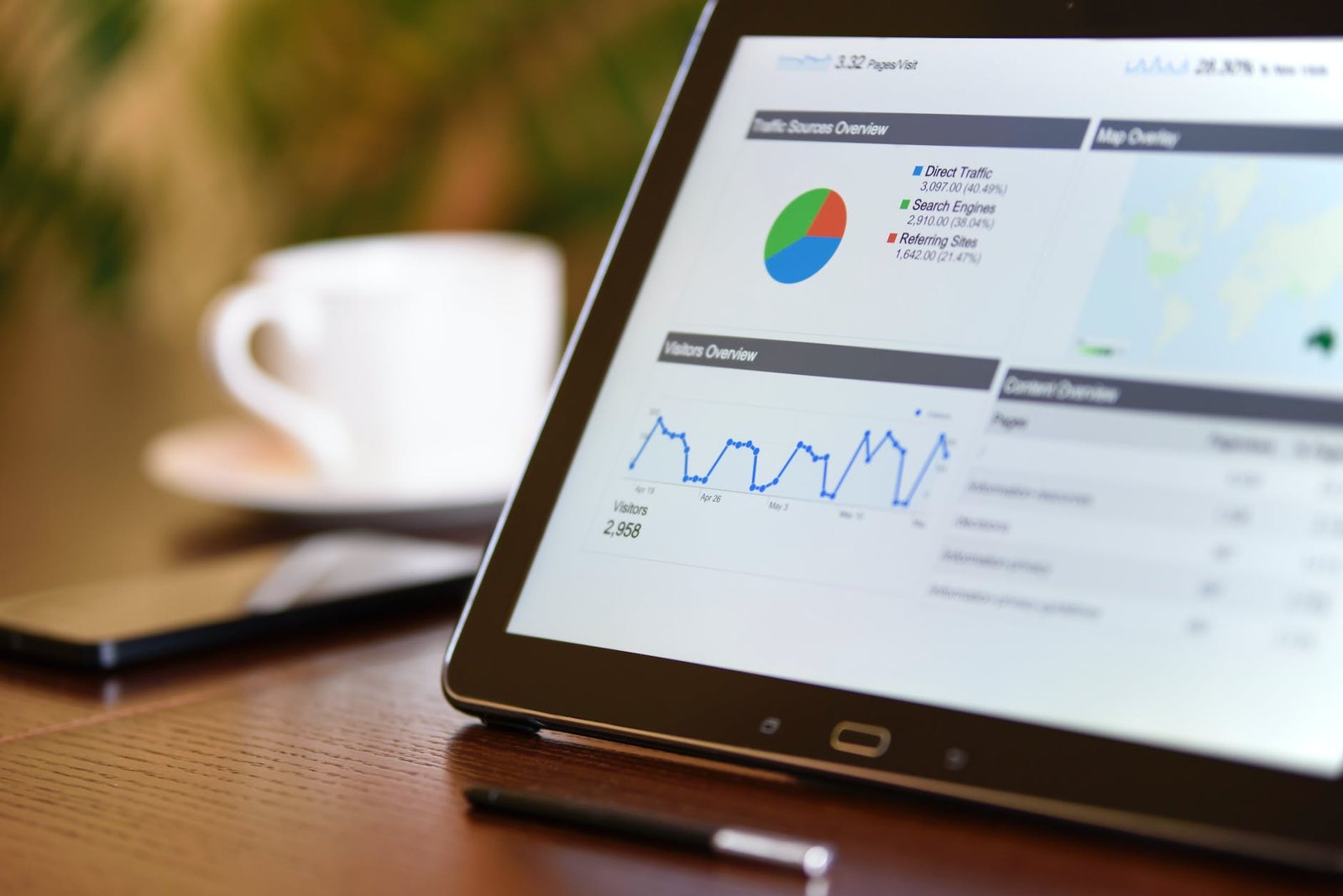Digital marketing has become an essential component of any business strategy, but simply creating an online presence is not enough to succeed in the competitive online world. To understand the effectiveness of your digital marketing efforts, you must have a clear understanding of how to measure and analyze your performance.

In today’s digital age, businesses of all sizes and industries are leveraging digital marketing to reach their target audience and achieve their marketing goals. Whether you’re a small business owner or a marketing professional, it’s crucial to understand how to measure and analyze your digital marketing performance to ensure that you’re getting the most out of your investment.
Digital marketing performance measurement involves tracking and analyzing various metrics that indicate the effectiveness of your digital marketing efforts. These metrics provide valuable insights into how your target audience is interacting with your brand online, what’s working well, and what areas need improvement. By tracking and analyzing these metrics, you can make data-driven decisions and optimize your digital marketing strategy for better results.
In this blog, we’ll discuss the key metrics to track and the tools you can use to measure your digital marketing performance. Whether you’re looking to increase website traffic, generate more leads, or boost your social media presence, this blog will provide you with valuable insights to help you measure and analyze your digital marketing performance.
1. Website Traffic

Website traffic is one of the most basic metrics to track when measuring the success of your digital marketing efforts. It relates to how many people have visited your website.. By tracking website traffic, you can determine the success of your digital marketing campaigns and identify areas where you may need to improve your strategy. Google Analytics is a great tool to track website traffic and analyze visitor behavior.
2. Conversion Rate
Conversion rate is the percentage of website visitors who take a specific action, such as filling out a form or making a purchase. You can find out how well your website converts visitors into clients by monitoring your conversion rate. You can use Google Analytics to track conversions on your website and identify areas where you may need to improve your website design or user experience.
3. Social Media Engagement
In any digital marketing strategy, social media must be included. By tracking your social media engagement, you can determine how effective your social media campaigns are at reaching your target audience. Social media engagement includes likes, comments, shares, and followers. You can use social media analytics tools, such as Hootsuite or Buffer, to track social media engagement and identify areas where you may need to improve your social media strategy.
4. Email Open and Click-Through Rates
Reaching your target audience and generating leads may be accomplished quite effectively with email marketing. By tracking your email open and click-through rates, you can determine how effective your email campaigns are at engaging your audience. You can use email marketing tools, such as Mailchimp or Constant Contact, to track email open and click-through rates and identify areas where you may need to improve your email marketing strategy.
5. Search Engine Rankings
Search engine rankings are an essential component of any digital marketing strategy. By tracking your search engine rankings, you can determine how effective your SEO strategy is at driving organic traffic to your website. You can use SEO tools, such as SEMrush or Ahrefs, to track your search engine rankings and identify areas where you may need to improve your SEO strategy.
6. Pay-per-click (PPC) Advertising Metrics
If you’re running PPC campaigns, it’s important to track metrics such as cost per click (CPC), click-through rate (CTR), conversion rate, and return on investment (ROI). These metrics can help you determine the effectiveness of your PPC campaigns and optimize your bidding strategy to improve your results. Google Ads and Microsoft Advertising offer robust reporting tools to track PPC performance.
7. Content Engagement Metrics
Content marketing is a vital component of any digital marketing strategy, and tracking content engagement metrics can help you determine how effective your content is at engaging your target audience. Metrics such as pageviews, time on page, bounce rate, and social shares can provide insights into how your content is performing and what types of content resonate with your audience. Google Analytics and social media analytics tools can help you track content engagement metrics.
8. Customer Lifetime Value (CLV)
Customer lifetime value is a metric that represents the total revenue a customer is expected to generate for your business over their lifetime. By tracking CLV, you can determine the value of each customer and develop strategies to increase customer loyalty and retention. CLV can be calculated using various tools, such as Google Analytics, CRM software, or customer analytics platforms.
9. Brand Awareness Metrics
Brand awareness metrics can help you measure the effectiveness of your branding efforts and determine how well your target audience recognizes and remembers your brand. Metrics such as brand mentions, social media followers, and website referrals can provide insights into how your branding efforts are resonating with your audience. Social media listening tools and brand monitoring tools can help you track brand awareness metrics.
10. Mobile Metrics
With the majority of internet users accessing the web through mobile devices, it’s important to track mobile metrics such as mobile traffic, bounce rate, and conversion rate. By tracking these metrics, you can ensure that your website is optimized for mobile devices and that your mobile marketing strategy is effective. Google Analytics and mobile analytics tools can help you track mobile metrics.
In conclusion, measuring and analyzing your digital marketing performance is essential to the success of your business. By tracking key metrics, such as website traffic, conversion rate, social media engagement, email open and click-through rates, and search engine rankings, you can determine the effectiveness of your digital marketing campaigns and identify areas where you may need to improve your strategy. With the help of the right tools, you can gain valuable insights into your digital marketing performance and make data-driven decisions to improve your results.
Tracking and analyzing digital marketing performance metrics is crucial for the success of any business’s digital marketing strategy. By leveraging the right tools and tracking the right metrics, you can gain valuable insights into your audience’s behavior, measure the effectiveness of your marketing campaigns, and make data-driven decisions to improve your results.
Here are real-life examples of how businesses use digital marketing metrics to analyze their performance.
Search Engine Rankings

A small business that sells handcrafted jewelry can track their search engine rankings for keywords such as “handcrafted jewelry” and “artisan jewelry.” By tracking their rankings over time, they can determine the effectiveness of their SEO strategy and make adjustments to improve their rankings.
Website Traffic
An e-commerce business can track their website traffic using Google Analytics. They can analyze the source of their traffic (e.g., search, social media, email marketing) and the behavior of their visitors (e.g., time on page, bounce rate). This can help them identify which channels are driving the most traffic and which pages are performing well.
Social Media Engagement

A fashion brand can track their social media engagement metrics such as likes, comments, shares, and followers. By analyzing their engagement metrics, they can determine which types of content are resonating with their audience and adjust their social media strategy accordingly.
Email Marketing Metrics
An online retailer can track their email marketing metrics such as open rate, click-through rate, and conversion rate. This can help them determine the effectiveness of their email campaigns and optimize their email marketing strategy to improve results.
Pay-per-click (PPC) Advertising Metrics
A B2B software company can track their PPC advertising metrics such as cost per click (CPC), click-through rate (CTR), and conversion rate. By analyzing their PPC metrics, they can determine which keywords and ad copy are performing well and optimize their PPC campaigns to improve results.
Content Engagement Metrics
A healthcare provider can track their content engagement metrics such as pageviews, time on page, and social shares. By analyzing their content engagement metrics, they can determine which topics are resonating with their audience and adjust their content marketing strategy accordingly.
Overall, these examples demonstrate how businesses of all sizes and industries can leverage digital marketing metrics to measure and analyze their digital marketing performance and make data-driven decisions to improve their results.
